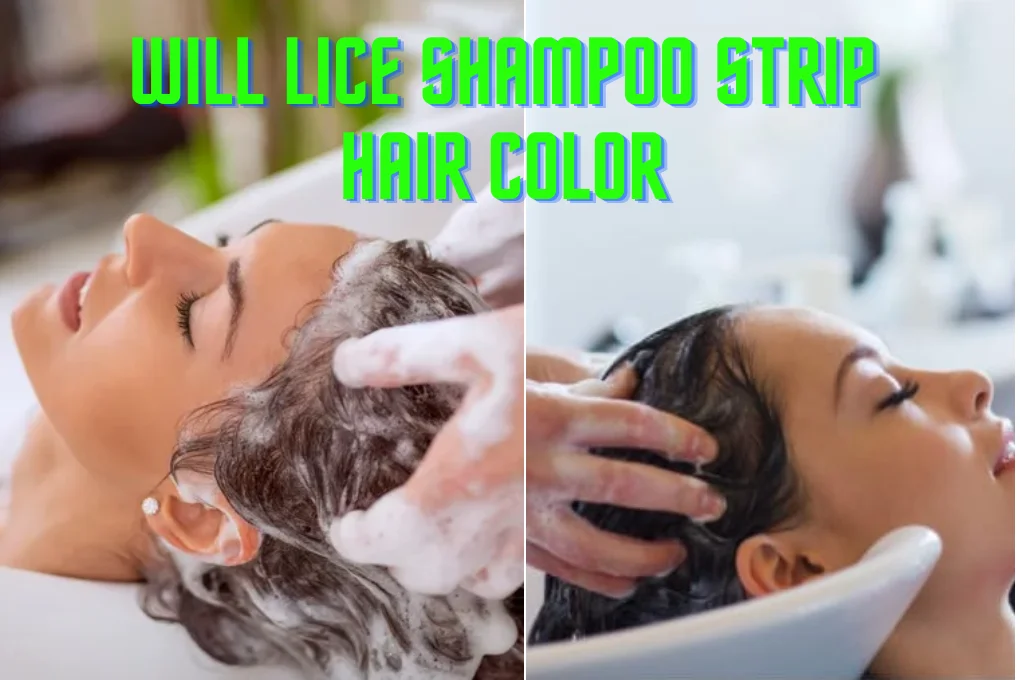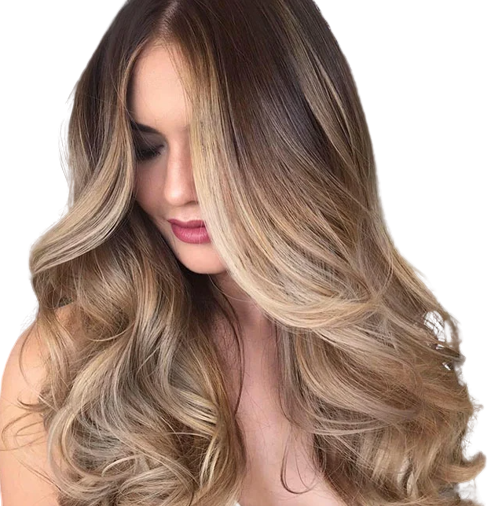Have you ever wondered, “Will lice shampoo strip hair color?” Well, you’re not alone in pondering this common concern.
As someone who has dealt with both lice and colored hair, I know firsthand the anxiety that can come with using lice shampoo when you’ve invested time and effort into achieving that perfect hue.
In this blog post, I’ll give you a plain, no-nonsense response to this critical subject. We’ll get into the specifics of lice shampoo and how it may affect your hair color.
So, if you’re wondering if your brilliant locks are at danger, keep reading to find out everything you need to know.
Will lice shampoo strip hair color?
Lice shampoo and hair color can be a tricky combination. The short answer: yes, lice shampoo can potentially strip your hair color. Lice shampoo can strip hair color. Here’s why:
Harsh Chemicals and Hair Color Fading
Lice shampoos contain potent chemicals, often referred to as pediculicides, that are specifically designed to combat lice infestations.
These active ingredients can include substances like pyrethrin, permethrin, or malathion. While these chemicals are effective at eliminating lice, they can also be harsh on your hair.
When lice shampoo comes into contact with your hair, it can lead to the gradual fading of your hair color.
This fading occurs because the chemicals in the shampoo can strip away the pigments that give your hair its vibrant hue.
If you’ve invested time and money in achieving a beautiful and lasting hair color, this effect can be disheartening.

Porosity Matters
The impact of lice shampoo on your hair color can vary depending on your hair’s porosity.
Hair porosity refers to how easily your hair can absorb and retain moisture and substances like hair color or chemicals from lice shampoo.
Hair with higher porosity, such as hair that has been bleached, permed, or damaged, is more susceptible to color loss when exposed to lice shampoo.
This is because the damaged cuticles in porous hair allow the harsh chemicals in the shampoo to penetrate more deeply, further accelerating color fading.
Repeated Battles
If you find yourself repeatedly battling lice infestations and resorting to lice shampoo frequently, your hair color may suffer even more.
The cumulative effect of exposure to these harsh chemicals can lead to more significant color fading over time.
This is especially concerning if you have a vibrant or unconventional hair color that requires frequent touch-ups.
Drying Effects
Many lice shampoos contain alcohol or other drying agents to help kill lice and their eggs. While this is effective against lice, it can be detrimental to your hair.
Excessive dryness weakens your hair strands, making them more susceptible to breakage and further compromising your hair color’s longevity.
Prevention vs. Treatment
To safeguard your hair color, you might consider focusing on lice prevention rather than treatment.
Prevention methods, like regular lice checks, using preventive shampoos with milder ingredients, and avoiding head-to-head contact with infested individuals, can help reduce the need for harsh lice treatments.
Protecting Your Hair Color
1. Choose a Gentle Lice Shampoo
Opt for lice shampoos that are formulated to be gentle on hair and scalp. Look for those with fewer harsh chemicals.
2. Use a Color-Protecting Conditioner
After using lice shampoo, follow up with a color-protecting conditioner to help retain your hair color’s vibrancy.
3. Limit Usage
Avoid using lice shampoo more often than recommended. Overuse can be detrimental to your hair color.
Does lice shampoo affect hair dye?
Lice shampoo can affect hair dye. When you use lice shampoo, it contains active ingredients like permethrin or pyrethrin. Utilizing their nervous system as a target, these substances are made to kill lice.
However, these same ingredients can also strip away hair dye. Your hair color may fade or become uneven as a result of them. This happens because the chemicals in lice shampoo can break down the pigments in the dye.
If you’ve recently dyed your hair and need to use lice shampoo, it’s essential to wait at least 48 hours after coloring. This allows the dye to set and reduces the risk of it washing out too quickly.
To minimize the impact of lice shampoo on your hair dye, consider using a color-protecting shampoo and conditioner. Your hair color may last longer with the aid of these items.
Is head lice shampoo bad for your hair?
Head lice shampoo can be bad for your hair. Most lice shampoos contain chemicals like permethrin or pyrethrin to kill lice. Your hair may suffer from these chemicals.
Your hair could become brittle and frizzy if they dry it out. Repeated use of lice shampoo can lead to hair damage and breakage.
To minimize the impact, use a gentle shampoo after lice treatment and apply a deep conditioner to restore moisture.
Does permanent hair Colour kill lice?
Permanent hair color does not typically kill lice. Hair color is primarily designed for cosmetic purposes, to change or enhance hair color, and it doesn’t contain the active ingredients necessary to eliminate lice.
Lice are resilient parasites that require specific lice treatments like lice shampoos or lice creams that contain pediculicides. These products are formulated to kill lice and their eggs effectively.
If you have lice, it’s essential to use a dedicated lice treatment recommended by a healthcare professional or pharmacist.
Don’t rely on hair color as a lice-killing solution; it won’t effectively get rid of these pests.
Can I Colour my hair if I have lice?
Coloring your hair when you have lice is not recommended. Lice treatments require close contact with your scalp, and hair dye can interfere with their effectiveness.
It’s best to address the lice infestation first. Use a dedicated lice treatment as directed by a healthcare professional or pharmacist.
Once you’re lice-free, wait a few days before coloring your hair. This allows your scalp to recover and ensures that the hair dye won’t be compromised by any remaining lice or treatment residue.
In summary, prioritize lice treatment before coloring your hair to achieve the best results and maintain your hair’s health.
FAQs
Can lice shampoo completely remove hair color?
No, lice shampoo is not designed to remove hair color entirely. However, it can lead to color fading, especially if you have color-treated hair.
Are there natural alternatives to lice shampoo that won’t affect hair color?
Yes, there are natural remedies like tea tree oil or neem oil that can be effective against lice without compromising hair color.
Can I color my hair immediately after using lice shampoo?
It’s generally recommended to wait a few days after using lice shampoo before coloring your hair to allow your scalp and hair to recover.
Are there lice shampoos specifically designed for colored hair?
Yes, some lice shampoos are formulated to be gentler on colored hair, but it’s essential to read product labels and reviews to make an informed choice.
How can I prevent lice infestations without using lice shampoo?
Regularly checking for lice, maintaining good hygiene, and avoiding sharing personal items like combs and hats can help prevent lice infestations without the need for lice shampoo.
Conclusion
Lice shampoo can indeed strip away your hair color, especially if your hair is porous or has vibrant hues.
It’s essential to be aware of this potential effect and choose your lice treatment options carefully, especially if you’ve invested in maintaining your hair’s color integrity.
Balancing the need to get rid of lice with the desire to preserve your hair color is a crucial decision to make when faced with a lice infestation. Stay informed, and make choices that align with your hair care goals.
